|
DG: Let’s begin with a question for Willis: You’ve met and worked with many renowned persons of our time. In 1981, you conducted a lengthy interview with Jorge Luis Borges, where he says: “Personally, I suppose all writers are writing the same book over and over again. But I suspect that every generation rewrites, with very slight variations, what the other generations wrote. I don't think a man can do much by himself, since after all, he has to use a language, and that language is a tradition. Of course he may change that tradition, but at the same time that tradition takes for granted all that came before it.” In your view, have today’s writers changed literary traditions for better or worse?
WB: You ask me about today’s writers. I have to say that I’m quite old-fashioned. I mean, for me, Hart Crane is a modern poet; in part because I find so much modern poetry to be stunt poetry, meaning it’s an exhibition, and it really doesn’t depend upon language as it depends upon circus, which is fine, but it doesn’t interest me too much. I’d rather read Sappho or Homer.
DG: That’s interesting. Those are strong traditions. So, in your view, modern writers haven’t exactly taken advantage of this tradition in the best possible way?
WB: Well, no, not all writers, but many of the most popular ones. I mean, today, I had a long conversation with my friend Khaled Mattawa, who was my student at Indiana university, and I got his first book published, and he feels the same as I do—that people tend to be on the illiterate side. They don’t read Sappho—if they’ve ever heard of her. I’m a kind of pedant. You know, I don’t mind being pedantic.
DG: Let’s talk about that and about Borges perhaps. You met him in 1968 in New York and the two of you went on to have a long friendship, in which you discussed this literary tradition—
WB: I spent a year in Argentina or so, and I lived exactly across the street from him. I brought him three times to Indiana to give talks. I went around the USA with him. We had a fun thing. When we got to New York, one of the questions from the audience was: “Mr. Borges, you know so many things. When will we ever finish the East Side Highway?” And he said to me: “What’s that woman talking about?”
TB: I remember when Borges was in Indiana, he was on stage, and someone from the audience asked him: “Mr. Borges, I wonder, was there ever a woman who for you was the quintessence of all womanhood, who was your Muse?” And he said: “Yes, in truth there was, but the strange thing is, she kept on changing her face.”
WB: I remember: “She kept changing her face and name.”
TB: And name, yeah.

DG: That’s a wonderful story.
WB: Borges also had this theory: He said that Charlie Chaplin was an outsider and had a very distinct view on humor, because he was a Jew, and Jews are on the outside of things, and, therefore, can laugh. Well, the fact is that Charlie Chaplin married two Jews, but he was from a Catholic family—he was self-educated, and brilliant, of course. As an acrobat, he was a master. He wrote the music, everything. But it wasn’t because he was Jewish, it was because he was Charlie Chaplin.
DG: Certainly, dual identities, and navigating that is certainly a tough task—
WB: I think you’re like Borges. You know so many languages—it’s popping out of your ears.
DG: English is my third language. It’s my native language, but it’s not my first one.
WB: It’s good to have a native language. We’re not happy without one, but the problem is when you’re like us—in what language do you dream? For years, I dreamed in Chinese, but always with a dictionary in my hand.
TB: One of my great anxiety dreams is I have to speak Chinese, and often what will happen is that it’ll come out in Chinese and when I forget the words, I’ll switch over to Spanish or Greek—in my dream—and then it’ll be so confusing, I’ll wake myself up.
WB: Tony was very good in Chinese, especially when it came to legalistic stuff, things like how much we have to pay for a room, because everybody was trying to cheat us, alas.
TB: The thing is that we were given special treatment as scholars from the West, as Fulbright Scholars. They gave us “Friends of China” status, which meant that we had what’s called the “white card,” and with a white card you could get Chinese prices as compared to Western prices—which meant sometimes the difference could be—
WB: Almost twice as much.
TB: Could be, yeah, sometimes the difference of a thousand percent in the price. And so, you would go to an expensive hotel and ask for the Chinese price, and first they’d say: “We’ll get you into a room.” But when you showed them the white card, they’d say: “Oh, I’m sorry, we’ve just filled up.” And then you’d have to argue. Just to have a place to stay the night. This is a long time ago.
DG: These are idiosyncrasies and peculiarities you can’t read about in books. You can only get them through stories. Let’s shift gears a little and talk about your recent work, Willis, Poets of the Bible: From Solomon's Song of Songs to John's Revelation, published in 2017. In the foreword, you wrote: “Bible speech is our atlas and guide to language, literature, and philosophy. The great voices in Genesis, Solomon, Job, and Psalms, and Gospels, Paul, and Revelation keep the biblical fountain flowing with magnificent speech. It continues in contemporary poetry from T.S. Eliot and Dylan Thomas to Joan Baez, John Lennon, Theodore Roethke, and C.K. Williams.” Would you say that declining religiosity might produce poorer literatures, or do you see faith and religious texts as independent things?
WB: Well, I think religiosity is a pejorative word. No, I don’t think that religion helps or hurts. It depends on who you are. If you’re good, you’re good. It doesn’t matter whether you are Catullus, or secular, or Sappho, who certainly was secular. If you’re good, you’re good, and it doesn’t matter whether you’re writing in Provencal, Italian, English, French, or Inuit language—whatever they write in. I say “whatever” because every twenty miles, it’s slightly different.

TB: Another way of thinking about it is that declining religiosity, or the undermining of the church because of Darwin and science, and so on—without that, you wouldn’t have the essential crises of morality, consciousness, and spirituality that gives us “The Waste Land,” or the terrible sonnets of Hopkins, for example, or the great poems of Matthew Arnold. My point is that the sea change caused even religious people to doubt their own religions, like T.S. Eliot did his childhood Unitarianism. So he converted to a conservative Anglicanism, with some forays into Indian Vedic Literature—The Upanishads, and so on—exploring world spirituality as options to a childhood religiosity, and that transition gave his work an arc, from the early poems of Prufrock, all the way through the Four Quartets. His example shows us the decline of faith, but also the reassertion of a certain necessity for faith in the end.
DG: That’s interesting because it’s this kind of difficulty—the crisis of the modern that makes a lot of this modern poetry possible. It ties in with what Willis said—this idea that it’s about who you are and not the religion itself. And so I’d like use this as a jumping off point: You’ve lived and worked in different parts of the world, and this exposed you to ideas and customs in a direct, tangible way. At the same time, you’re also a man of letters, having studied at the most prestigious institutions such Yale and Bowdoin College. You’ve seen the world through books and travel—the wisdom of experience and the tangible truth of the page. What’s a place and book that made a particularly strong impression on you?
WB: Well, I think the person who influenced me maybe most is Sappho, and she writes in a dialect of Greek—Aeolic Greek, which isn’t that different, if you learn a few consonantal changes. About religion, I think it’s probably done nine-tenths harm and one-tenth good, in terms of painting for example. Except in Greece, where you have the sculpture of Antiquity, which is infinitely beautiful. They rescued so much of it there when they had the 2004 Olympics, because they went underground, and all they found was marble statues. I think if you go to every great museum, about eighty percent of the pictures are religious, until you get into the middle of the 19th century, and it’s so repetitious, but also sometimes marvelous. Most of the time it’s not. And so, I don’t think religion in that sense has helped diversify the stories we can tell.
DG: Indeed, when something follows essentially the same formula, one can get overwhelmed by it.
WB: Much of it is New Testament, and I did a translation of the New Testament. It’s a two-thousand-page book attacking the outsider. And I could go into this at great length. I have lots of essays on it. I wish it were a good book, but Jesus does too much punishing.

DG: That has to be admitted. It’s like that. There’s very little of what you can do and a lot of what you can’t.
WB: Exactly, exactly.
DG: Let’s go back to you, Tony. I would like to ask you about your creative process. Your literary approach is multifaceted, in the sense that you prefer to blend various kinds of media with the written word. With Alexandra Eldridge, for example, you released The Radiant Tarot: Pathway to Creativity. You also wrote a collection of poems, of War From Pearl Harbor to Nagasaki, which later evolved into Tokyo Burning, an album of songs with John Clinebell and Ariana Hall, part of a duo called Genuine Brandish. Along with a discussion of these projects, what are other ways you’ve mixed literature with different arts, and do you prefer to start with the written word or to draw inspiration from another art form?
TB: The Radiant Tarot came about because I had the idea—what would it be like to publish a book of poems that was actually a deck of cards? A book that didn’t have a page order—a page numbering. You could shuffle the poems, and pull them out, like you might deal cards from a deck. I had the idea it might be interesting—it’s a bit like Rayuela or Hopscotch, the great novel by Julio Cortazar—to choose your own story. Or “The Garden of Bifurcating Paths” by Borges—the idea that you can find your own path through the story, and time, and the universe. And partly I was inspired by “The Waste Land,” where Tarot cards appear. You can think about the different scenes or different voices of “The Waste Land,” many of which could go back to Madam Sosotris’s reading of the cards, the drowning man, and so on, like cards. In this way, “The Waste Land” itself is a kind of shuffled deck, and a lot of that modernist collage from Paterson to The Cantos to The Sound and the Fury, or Ulysses, has that shuffled card effect. That was my interest. Then it slowly evolved, and it ended up being a Tarot deck, not a book of poems. I wrote the book that accompanied a Tarot deck. My friend Alexandra Eldridge made the wonderful art, and it turned into a twelve year journey together—about fifteen years since I started it—in which I delved into the history, philosophy, psychology, and neuroscience of creativity. So it becomes a Tarot of creativity—a Tarot which tries to get at what makes us creative. And what is the creative process? Without going into much detail, if you think about the four Tarot suits (which have evolved into spades, hearts, diamonds, and clubs in the common deck of cards) the Wands, the Pentacles, the Swords, and the Cups are each associated with different mental acts, so that the cups are meditation and dreaming, the prewriting process, and the striking of inspiration, the charging forward, the fire of the creative process is the Wands. The process of revision and cutting back and rationality is the Swords, and the process of giving it all structure and grounding is the Pentacles. So I ended up making this Tarot, which is really for everybody, but especially for creative people. For every card I’ve created a creative prompt—a game, an act, or a journey you could apply to your life. They’re not all about sitting down and writing a poem, or making art. It’s really more about taking the ideas of the card, applying them creatively to your life, with the idea that your life itself could be your artwork, and you could be the creator of your life, just like you’re creating a work of art. That’s The Radiant Tarot in a nutshell.


DG: When you’re reading the work, you’re both discovering the work, but also discovering yourself in a sense. Both for you as an artist, but also the relationship between the reader and the text.
TB: Absolutely true. Think about the Tarot card as a Rorschach. You look at a Rorschach—there’s an old joke. A man goes into a psychologist’s office and says: “Well, I’ve been having all these strange dreams. I don’t know what to make of it.” The psychologist says: “Well, let’s do a little test. Here, look at this picture. It’s called a Rorschach. And what do you see?” The man says: “Well, I see a man and a woman making love.” The psychologist says: “Well, look at this next one. What do you see here?” The man says: “I see a man and another man and yet another man and a woman making love.” The psychologist says: “Okay. Look at this one. What do you see here?” The man says: “A man and a woman and a dog making love.” The psychologist says: “Well, I think I’ve diagnosed your problem—you’re a sexual addict.” The man says: “You’re calling me a sexual addict after showing me all these dirty pictures?” So, anyways, bad joke, but the point is that so much of what see in the cards comes from what’s in our mind. It’s just like theater exercises or art prompts or creative writing exercises. You drop a line into the unconscious and whatever deep sea fish is swimming around down there will grab the hook. You pull it out and the Tarot card is your fishing line.
DG: This leads into the next question of mindset, and what you feel in any given moment. I would like to ask you, Tony, talking about psychology and this sort of fishing hook into the psyche, there’s a story that you met the pilot of Enola Gay, Paul Tibbets, who dropped the nuclear bomb on Hiroshima—that must’ve been a pretty big fishing hook into your psyche. What was that meeting like, and for better or worse, what did you learn as a result of the encounter, and how did it change you?
TB: At that time, I was married to my college girlfriend, Ayame Fukuda, who was born in Japan, later naturalized as an American citizen, parents also born in Japan, and I was very close with my in-laws, my Japanese-American family, knowing that the children I thought we were going to have were going to be Eurasian, so sitting down at the dinner table with the man who dropped an atom bomb on a non-military target—creating a chain-reaction explosion that with the power of twenty-thousand tons of dynamite killed 130,000 people in an instant, plus all the people who died of radiation poisoning afterwards—it was a challenging moral moment for me. I felt I couldn’t just sit silently and be polite and have good dinner conversation with this “honored guest” who was brought to the college. I had to ask the question: “What do you think about these revisionist historians who question the morality of dropping the atom bomb on Hiroshima?” And his response was: “If you could’ve seen the patriotism we felt—if you had seen our sincerity, you would never have asked that question. The days of knights meeting out on the field in one to one fighting, that’s long over. In total war, everyone is guilty, and everyone deserves to die.” Now, that’s a moral stance. That’s a very strong moral stance. You asked the question: “How did that make me feel?” Well, I mean, obviously I didn’t have much to say. I wasn’t going to argue with our distinguished guest, right? I did, at least, ask the question, and I got his response, and it made me really understand something key, which is that maybe the atom bomb sped up the end of the war, although some argue that, in fact, it didn’t—depends on the historian. If my father, for example, had gone off—he was of the age—to Japan and fought, well a million Americans, they say, would’ve died in the invasion of the home islands, and there is a good chance that I would never have been born. On the other hand, I was married to a Japanese American—my mother-in-law was from an old Samurai family, and it’s a complex mix of feelings. In some sense, I was on both sides of the war. It felt a bit like the perspectivism of Santayana and Nietzsche—this idea that your morality depends on your perspective. There’s the African proverb: "Until the lions learn to speak, the hunters will always be the heroes of the story." And so, this launched me into the Tongue of War book, because I began to ask: “Well, what would Oppenheimer say? What would Gandhi say? What would Truman say? What would a Chinese prisoner of war say? What would a Japanese Kamikaze pilot say? What would they all say about these aspects of the war—the dropping of the bomb, the Rape of Nanjing, and so on. What would a prisoner of war who found himself released because the war had ended—what would the people in America who were dancing in the streets and celebrating after the dropping of the bomb, because finally this war is going to be over—say? What would a child walking through the streets of Hiroshima— watching people walking with their arms stretched out because their skin had been burned black, it chafed too much, it hurt too much for the skin to touch skin because their skin had been charred like a roast in an oven—say? What would all those people say? And so, this one perspective—this very intense perspective of Paul Tibbets launched me on this journey.
DG: A lot of people feel it was a necessary act, but it was truly courageous of you to ask that question, because, really, necessary for whom? That’s ultimately what we’re talking about. It certainly wasn’t necessary for the innocent Japanese people who had nothing to do with the war.
TB: Do you know why they dropped the bomb on Nagasaki?
DG: I know they dropped the bomb because it was a way of deterring the Soviets—
TB: From seizing more of the islands, because they understood the next conflict was going to be with the Soviet Union, but more specifically, why Nagasaki? Because the first two targets—
DG: Ah, yes, I know this story.
TB: You know the story?
DG: There was the cloud cover—
TB: That’s right.
DG: They moved the target and dropped the bomb on another city—I don’t remember which city they were initially supposed to drop it on—but they moved the target because the original city had been covered by clouds. And that’s fate for you.
TB: That’s fate. The clouds opened up just in time for them to drop the bomb. If the clouds had not opened up, 80,000 people in Nagasaki wouldn’t have died.
DG: And we’re talking about religion. Is this an act of God?
WB: I was with the Quakers—I’m not a Quaker, but I went to a Quaker school, and I worked for the American Friends Service Committee in many countries, especially Mexico, Spain, parts of Latin America, and so forth. I happened to be in an Indian village called Miacatlán. The only people who spoke Spanish were the doctor and the pharmacist. The rest spoke Aztec or Nahuatl—the ancient language—and it came over the radio that the bomb had dropped and the war was over. Most of people whom I was with were Quakers, but not the kind in the East, who were rich and sophisticated, but Central American, who didn’t believe in dancing or going to the movies, and all of them got on the table, and they sent me down to get Tequila, and we all screamed at the top of our lungs: “La bomba ha caído. Termina la Guerra.” “The bomb has dropped. The war is over”—in English and Spanish, and any language we could figure. So, it was a magnificent day for the rest of us. As far as the bomb goes, it’s a long story, as many people had been killed in Tokyo with all the radiation—
TB: In the firebombing of Tokyo, 100,000 people were burned to death in a firestorm.
WB: And the Japanese had tried to have poison gas blown to America so that all the people on the West Coast would die; unfortunately, the winds changed and blew it back on Japan, so they quickly got rid of it. I mean it was a ruthless war on all sides.
DG: Let’s hope we won’t have another—
WB: Hopefully there won’t be major ones, because the world will disappear. Look what’s going on right now. By the way, I just got this book—it’s a beautiful translation of Baudelaire, whom I’ve translated also, the complete poems. It’s by Aaron Poochigian.
DG: Ah, yes, I’ve heard of him. He’s posting on social media about that for some time. It’s such a pleasure to know that you have it, Willis. He’s working incredibly hard on that.
WB: Yes, yes.
DG: He’ll be glad to know that you have it.
TB: He’s a wonderful translator and he’s done many of the great classics.
DG: Willis, let’s transition back to China. You were in China during the Cultural Revolution and even translated some of Mao’s poetry before arriving. In a 2015 NY Times interview you stated that “Mao was an excellent poet behind the gibberish translation. It was the worst kind of Chinglish. If you are a writer, you can see the writing behind even a bad version. Most of his poems have a political element, but he never forgets to bring the classical gods in.” It’s also interesting that China—a country with such an ancient history—should have a language whose grammatical structure accommodates only the present. With respect to the past, how does Mao’s poetry measure up to the great historical voices of Du Fu or Su Dongpo, for example?
WB: Mao had an interesting life. He was a laundry man, of all things, poor. He slept in a bed with eight other people. When they wanted to turn, they had to give a message, and they’d all turn at once, or they’d all fall on the floor, kind of ridiculous. I thought he was a very good poet. I haven’t looked at his work in recent years, but I hold to that. The works are all political, and they refer to ancient Chinese gods, and they’re all based on ancient tradition.
DG: That’s interesting because this is an aspect of his life that many people don’t really know about—the fact that he did write poetry, and, like you said, his poetry isn’t actually that bad. One more question for you, Willis, before we transition back to Tony. So, Chinese poetry and actually Asian authors in general are largely ignored by Western academics—
WB: I don’t think so. On the contrary. It was Pound, Amy Lowell, the whole Bloomsbury group that discovered Chinese poetry, and Japanese, which gave them Imagism, and a whole new way of expressing picture poems in verse. No, I think Chinese poetry had an immense effect on Western poetry, in particular English poetry. I mention Amy Lowell and so forth, and Pound, of course.
DG: What I mean is that, of course, Chinese literature did influence many individual writers, especially those you mention, but what I’m saying is that the academy doesn’t study it often. We don’t really read translations of Chinese poets, for example, in an MFA program, or even Comparative Literature programs—
WB: That depends on which one it is. They certainly did in mine.
DG: So times have changed, then? When I was a teaching assistant at the comparative literature program at Cal State Long Beach, most of that was very Eurocentric, but it seems like in the past there was this emphasis, like you say—there was a focus on Eastern authors as well, yes?
WB: It’s not only Eastern authors, but also “Eastern” authors also in Europe, like Mayakovsky, and a whole gang of other marvelous poets, including Greek poets. I think in the 20th century—this is a generalization, but I stand by it—the greatest poetry, apart from English, was written by the Greeks and the Spaniards (Lorca, Jimenez). They had more Nobel Prizes than America has had, but America has never had a Nobel Prize in Poetry—
TB: Well, with the exception of Bob Dylan, because that’s songwriting, of course. And, actually, Louise Glück just won.
WB: That’s right!
TB: Now we have two.
DG: Times are a-changin’ and so I agree with you, Willis, it depends on where you are and who you’re studying with, but there should be more emphasis in general on Eastern literature, because it’s just as good, if not better sometimes. Let’s come back to you, Tony, but let’s stay with China. With your father, you spent one year in Beijing translating the work of Tang Dynasty poet, Wang Wei. Can you talk about those experiences, what you learned, and not just about translation but the overall culture in which you were situated, and how the approach in translating Chinese poetry differs from other translations? In other words, how close can an English version, for example, get to what you’ve called “the poem behind the poem?”
TB: It would help to define my terms a little bit. When I talk about the “poem behind the poem,” I go back to an idea that was prevalent in modernism—that, as Le Corbusier said, “a house is a machine for living in,” and a book is also a machine for understanding. As William Carlos Williams wrote, “a poem is a machine made out of words.” Well, if it’s a machine, it does work, and it does a particular kind of work. And if you translate a poem without translating the work that the poem does, then what ends up happening is you haven’t really translated what the poem’s function is, like for example, let’s say you translate the poem’s meaning—meaning by meaning, not just word by word, but meaning by meaning, phrase by phrase, image by image, and you get that all across in your English, but maybe the poem was really not about any of those things. Maybe the poem was really a sound poem, or maybe the poem was a formal poem in which the rhyme is really essential, or maybe like “Drinking Alone in the Moonlight,” by Li Bai for example, it’s a poem about the moon, but the word “moon” only appears once or twice in the poem, but the moon radical—Chinese characters are made up of radicals put together, like little pictograms—appears several times throughout the poem. And so, the poem has moonlight shining all the way through it. That’s the poem behind the poem. So, your job isn’t just to figure out what the poem says—that’s what CliffsNotes does to literature; it says: Here’s what you can write your paper about. So, it’s not just what the poem says, but what the poem does. If you’re translating the poem behind poem, that’s what you’re translating. When you come to Chinese poetry, that’s particularly hard, because compared to English, Chinese is immensely ambiguous, especially classical Chinese poetry. You often don’t know the number of things. Is it one crow and one tree, or is it many crows and many trees, or many crows and one tree? We don’t know, right? And so, there’s an incredible ambiguity—you can drop the pronouns, it can almost be just pure language in the five characters, or seven characters, or four characters of the line. It might be largely nouns, verbs, and adjectives—power words—with maybe a preposition or so, but these connectives that give it specificity in English are dropped out for a more precise, more intense vision in the poem. So, what do you do in English? How much of that ambiguity do you bring across without losing the poem’s meaning? Another question—is this really what the poem’s work is? Is this really what the machine of the poem is trying do? So, in the sense, the deeper question to ask yourself is: How can I translate the machine of the poem? And from Chinese to English it’s really hard as compared to, say, Spanish to English, where there’s so many cognates, and where the structure of the language is so similar.
DG: Indeed, the whole concept of the machine of the poem, not just the meaning, but what it’s doing, the process itself of the poem—it has many parts and they come together and it’s important not just to translate the parts, as you say, but what all the parts do—
TB: I’ll give you one quick example. There’s a poem by Su Dongpo that is a poem which can be read beginning to end, or end to beginning. Now, when you’re translating that poem, you better damn well make sure that your translation can be read the same way.
DG: That’s going to be quite a challenge.
TB: It’s a challenge. It’s a big challenge, but if you don’t live up to that challenge, you haven’t really translated the poem.
DG: Very interesting. Let’s stay with one more question for you and then we’ll jump back to Willis. Given all the fascinating things you’ve said about Chinese poetry, I’d like to talk about your anthology of Chinese poetry, The Anchor Book of Chinese Poetry, covering 3000 years of literary tradition from the Book of Songs composed during the Zhou Dynasty to the Swiss-Chinese poet, Yang Lian. In the introduction, you write: “We have also attempted to adjust the canon, here and there, to shine a spotlight on fine poets whose work is often overlooked, and especially to make room for the poems of Chinese women.” Along with the difficult process of selecting, compiling, and editing this anthology, can you talk about how the activity of bringing less recognized Chinese writers to the forefront helped shape your own understanding the literary tradition, and how is their writing either stylistically different or similar to the more well-known names in the anthology?
TB: I think of the Chinese tradition in contrast to that of Japan, where sexism made the mainstream of Japanese literature female versus male. In Japan the male writers were so caught up in Chinese culture that they often wrote in Chinese, as a literary language—in the way that many writers through Milton and onward would write in Latin in addition to writing in English, but the real language of literature was supposed to be in Latin. Or like those Greeks who would write in the artificial language of Katharevousa versus Dimotiki (Demotic Greek), the clean, cleansed language of newspapers and politicians in which you couldn’t really write good poetry—so many examples of that. In Japan, because the women were often not educated in Chinese they wrote in Japanese, and because they were writing in their home language they wrote better literature, and they’re now remembered when a lot of the men are forgotten, so fascinating. But in China, a lot of women were not educated. Sometimes scholars would educate their daughters, and so on, but it was—remember that education in the arts in China was the high road to political promotion, because it was part of the Confucian classics that you had to study, the memorization of The Book of Songs, imperial anthologies, calligraphy, and musical ability, this is what in the West we would call the “renaissance man,” but in China it was a necessary part of passing your imperial exams in order to be promoted up in the government—not something that women could do, unless you happened to be the empress and the emperor died in which case you could run the country as the Empress Dowager, but that was rare. So, therefore, women’s literature wasn’t preserved; it was often written but not preserved in the way that men’s literature was. I’ll give you an example: There’s the Nüshu, the woman’s writing, where women in the west of China created their own language, and would write in this women’s language poems of love, poems of friendship, elegies, and so on, that were so important to them that knowing they would never be published, never be part of the literary tradition, they often would take their books of poetry and ask to be buried with them or burned with them upon their death. So there’s a great literature in China—a great women’s literature in China, and guess where it is? It’s ash in the sky. It’s rotting in the ground, underground. Yet some women’s literature still does survive. It may be that Li Qingzhao only has fifty or some poems that survive versus Lu You who has over a couple thousand, but every one of her poems is better than every one of his. So, I’m happy to emphasize her work over his, even though fewer of hers survive.

DG: That’s fascinating. Talking about women, we spoke about Sappho as well. Much of her work is just fragments, and it doesn’t exist anymore. Only God knows how much better she would be if we had the complete collection, all the work?
WB: We still have enough to make her the best of all, the best we ever had and have.
TB: It’s a process of literary reconstruction, right, Willis? You work with the fragments and fill in the gaps.
WB: If you have any knowledge of Greek, you can save so many poems, as I did.
DG: You have to recover as much as you can.
WB: One thing, however. If you have a son as smart as Tony, you better watch out. You’re in trouble.
DG: Aha, but this competition is a healthy competition. It leads to a lot of positive creative developments and breakthroughs, so this is quite good. Let’s come back to you, Willis, and go to a different continent now, Africa, where you also traveled extensively. You spent a lot of time in Kenya, for example, and your sequence of poems, African Bestiary, contains sonnets as well as invented forms. Can you talk about your travels throughout Africa, the uniqueness of this land, how it influenced the poems you wrote, and some of the forms you invented for this particular sequence?
WB: Well, I first began going to North Africa, back in 1951, and I kept going to Tangier, which is a fascinating city where the exiles of former kings and counts—from Eastern Europe, especially, but also some from Western Europe, French—went because they had no taxation, so they could make as much money, inherit as much money, and not give anything back. I loved being there. I loved the meals, everything. Later, Tony came up with the idea of going to Africa, and he said you have about twenty minutes to decide, and so we went. It was the most magnificent experience. We saw not only Kenya in the end. We also saw Tanzania. We went down as far as Zanzibar. We were in the middle of the Indian Sea, and a boat came by with about fifty or a hundred college girls, and Tony went off, saying: “See you soon, Willis.” And fortunately, I had—
TB: I don’t remember that.
WB: I had rubber fins to keep me floating because we had been towed up by a motorboat—it was impossible to get back to shore on my own. And I thought: “What a wonderful way to die out here in the sea.” But after a few hours or so Tony came back, and we had a great time. We continued, and I hope he had a good time with the women. I don’t think he ever told me, but Tony—
TB: I don’t remember any of that, but I do remember going to the island that we swam to and seeing the giant sea tortoises there.
WB: Yeah.
TB: I remember that.
WB: He must have been intoxicated—totally intoxicated by the lovely, young American women.
TB: I think Willis had an erotic dream and placed me in it.
DG: Aha! You’re still here, Willis. You made it through all of it. You’ve been everywhere and lived to tell about it all. You wrote about it, so you’ve truly seen and done everything there’s to do.
WB: I’ve never been to the South Pole—
DG: There’s still time, Willis. There’s still time. God willing—
TB: One quick thing about Africa. When we went to Kenya and Tanzania, and especially in Kenya, we did an extensive amount of touring of the game parks, along with birding at Lake Baringo, as well. So we would be in our truck, our Jeep, and we would be driving along with our guide through the Savannah—who was named Moses, which was appropriate. And so, Moses would be taking us along, and I would be like: “Look, Willis, a rhinoceros. Look, Willis, a leopard. Look, Willis, an ostrich.” And Willis would be writing sonnets in his notebook. He would look at the animal and then look away from the animal to write it all down. He spent his whole time writing, but he enjoyed it too. This book came very much out of his focus to write a bestiary.
DG: There was a poem about a hippo that you sent me, Willis, with your illustration that was quite nice. I like that poem, and now I know where all the inspiration came from. Tony was directing your inspiration there.
WB: We had a marvelous time. I remember in Zanzibar we each bought shoes to go on our rough feet. I think we paid about a dollar or fifty cents for them. They were lousy but at least we had something to protect our feet. The Africans were so sweet. They were poor. They ate too much meat. When we left, they treated us to a big free meal at a restaurant called something like—
TB: It was called Carnivore. It was a place where you would go to eat unusual animals, like ostrich, or crocodile.
WB: Crocodile tongue.
TB: Crocodile, or wildebeest, yeah.
DG: Truly an experience. This is not something you can get from books. You can only get it from people who’ve been there, like you. And so, I want to ask you, Willis, would you say you learned more about the world through your travels or books. If you had to have one or the other—is travel more essential to the human experience or books?
WB: I think it’s an unfair question because—
DG: It is. It is. I admit: It’s an unfair question, but you’re the perfect person for it. You’re both well-read, and you’re also well-traveled.
WB: If you’re not well-read, you can’t do anything with travel, and if you haven’t traveled what you read isn’t necessarily superficial, but it lacks a lot of very emotional and pictorial truths, which you only get by being there.
DG: That’s a perfect answer. I agree with you, because you miss much of the context in which that literature is written.
WB: The Romantics had—I mean Keats was marvelous but he hadn’t been to many of the places he wrote about. At least he ended up in Rome, and sadly died so young.
DG: Shelley, on the other hand, didn’t make it.
WB: The wind was too strong. He drowned.
DG: One more question for you, Willis. We’re basically at the end. We’ve done a good job.
WB: We’ve gone so fast through an hour? Is there no way of expanding time?
DG: Time is time. We can neither shorten nor lengthen it. Let’s go to the last frontier. Let’s go to the New World. Let’s go to America. I would like to talk about something quintessentially American. So from Africa we jump to America and Babe Ruth. It seems like you knew him. Did you really live in the same building, and do you have any interesting stories?
WB: I did live in the same building, on 90th and Riverside, which went from 90th to 89th. He lived on the 89th street side, and what happened was I was ten years old, and the doorman said: “Hey, kid, we’re going up to the Babe’s.” We crossed the little place there, the courtyard, we go up to the 18th floor. He had the penthouse up there, in a very big place. And when I went in, there were twenty or thirty photographers. It was 1939, just before the war started, and he had been an orphan himself. Very poor as he started out. He had sympathy for the poor, believe it or not, even though he was one of the richest baseball players. He loved women. He loved alcohol—
DG: And cigars.
WB: So, anyway, they took the picture, and it appeared on the front pages of most newspapers, and so I became famous for a day. When I got back to the World’s Fair (1939-1940), we picked up Pepsi and Coke bottles and sold them for two cents each at the local grocery, so we could get rich and pay our way back on the trains. It was great fun in those days.

(Willis Barnstone, left, with Babe Ruth)
From Willis Barnstone’s STICKBALL ON 88TH STREET
The Building
Babe Ruth lives on the other
side of the court. His brother-in-law
jumped from the 18th
story into the handball
area where play until tenants
got angry. I heard the thump
when I was in
bed. The Babe gave
me a baseball diploma. The same
elevatorman, Joe, who slapped for
not being nice to
Jerry (it wasn’t true)
took me upstairs to the Babe’s
for the photos in the Daily News.
Sunday afternoon we hear
Father Coughlin and Hitler
live, shrieking on the radio. Everyone
hates Hitler. Comes a strike, new
men keep billy clubs
by the doors. I
like the scabs same as Ruddy
and Joe outside to whom we
bring sandwiches. I heard
Ruddy got hit trying to
bust in. They almost broke
his head. It’s funny for men
to ride me up
the elevator. I always
run downstairs. They slow me down
as I race for the outside
into the north pole
wind and the gully.
But often I spend the afternoon
in a corner of the elevator,
going up and down
in the tired coffin.
When no one else is riding,
they let me close the brass
gate. I do it
like a grown man.
DG: Indeed. These stories are equal to the ones you and Tony told about Africa, and they’re quintessentially American. Thank you for that. Let’s transition back to you now, Tony. In staying with the American theme, I’d like to talk about your 2006 collection, Golem of Los Angeles, which won Red Hen’s Benjamin Saltman Poetry Award, and contains a powerful poem, “Parable in Praise of Violence,” featuring the following epigraph by H. Rap Brown: “Violence is as American as cherry pie.” Throughout the poem you sarcastically give thanks for all the greatness and depravity produced on these shores, but the fourth stanza is especially powerful: “My life is like a loaded gun, and when I aim it at you / I hope to take off the top of your head, / no safety on, no playing nice, just the spark, / the flash, the damage, just red American / cherry pie violence.” Did you compose the poem as a response to something specific or was it more a state of mind back then, and how do you feel about all that today, when things aren’t exactly improving—do you manage to retain a sense of optimism?
TB: Part of it, of course, is the reference to the Dickinson poem—“my life was like a loaded gun,” a very interesting poem. But for me, it also goes back to the idea of the poem being a machine made out of words. And one kind of machine, of course, is the gun. Like the gun, like the violence of the gun, the poem itself, as a machine, may not take off the top off your heads—"I know it’s poetry if it takes off the top off my head,” as Dickinson writes. It may not actually take off the top of your head, but it can give you that sense of almost violent ecstasy. The poem can ravish you emotionally. For me, from the very beginning, I wanted my poetry to do something, not just be polite—nice, domestic poetry that didn’t actually move the emotions and challenge you intellectually. So, there’s that. But on the other side of the question is the way in which, at that time and especially today, the American obsession with violence—particularly with guns and using guns as part of our revolutionary consciousness—permeates so many levels of society. I think we have been a sold a story of America, one story of America, whereas there are many stories of America that could be told—as can be seen with the current debate about critical race theory. But one story of America is that it was an enlightenment project, a revolutionary project against the order of absolute monarchs, or limited monarchy such as in England, and of despotic rule, culminating in a move towards the democratic representation of the people that started out with only white males of a certain economic level who could vote, and slowly that expanded to the rest of Americans, except for children, of course. Yet, that story of the Revolution, that story of the justifiable revolution against the father country, against the king, where we take up arms against oppression, has so permeated American consciousness, it has so become our “rebel without a cause,” not to mention the “movies” that are constantly sold to us about these violent men who create Second Amendment solutions to social problems, who are basically, if you think about it, no different in their own way than those men who put on white hoods and lynched African Americans, Jews, and others they considered undesirable—the lynchings in the Old South—that vigilante justice is at the core of the story Americans tell about themselves, and especially how it ties into our idea that the three hundred or so million guns owned by Americans are a bulwark against an oppressive government. And what’s happening right now, sadly, is that because of the pervasive propaganda, the disinformation of right-wing media has sold Americans a story that their government has been taken away from them, and they need to threaten death against election workers, politicians—they need to be ready to take up arms, as they did on January 6th, and storm Congress to take back America, just like the American Revolutionaries had to do against King George. That story is being told to us. It’s all a lie. But Americans sadly enough, if they get their news from the wrong place, they will get that propaganda, and they will believe it’s true, and they’ll be willing to kill each other. That’s why violence is as American as cherry pie. It’s our essential story. We need to take up violence, take up guns, take up arms, against oppression, even if that oppression doesn’t exist, even if the people we’re taking up arms against are, in fact, the victims. So, sadly enough—obviously I’m worked up about this—we’re in a bad place in America. We might be at the end of democracy. And I hope not.
WB: I don’t think that’s true. I mean it’s something that anyone who went to junior high school should know, but the notion of the Second Amendment giving people the right to have guns is not in the Second Amendment. The Second Amendment was written because—I think it was in 1812 or 1810 that they thought the English were going to attack again and try to reconquer the States, or America, whatever you want to call it. And it said they could have militias—it did not say people could have guns, and it was only for a special purpose of fighting the British, and so this misleading idea that it gave single people the right to have guns is just nonsense.
TB: And the supposedly originalist Supreme Court justices who said we have to go back to the context in which the laws were written ignore that history, because it doesn’t fit with their preferred story.

DG: I agree. The laws were written for a certain time. We can’t apply the standards of one time onto another.
WB: Right, and it isn’t only that it didn’t say that—it didn’t even say that because it doesn’t deal with the question of personal ownership. It doesn’t say you can’t have guns. It only says you can form militias.
TB: Dark image to end the interview on. Do you want to ask another question, so we end on something lighter?
DG: I have two more questions. For you and Willis. Are you reading or working on anything at the moment, Willis? What are you up to these days?
WB: I’m up to about three books. I did a book on Apollinaire—a translation with many illustrations. I finished my Baudelaire translation, again with paintings, and right now I am just tuning up with Tony’s help to make it all stay in place—these are big books—a 656-page book called Magic Couplets: Portraits of Poets—
TB: Beautiful paintings he made, and with couplets.
DG: Yeah, the stuff you’ve been sending me, Willis, the illustrations, the poems—you’re incredibly active. You work on every level—
WB: I’m only 94 years old—give me a break.
DG: You work like you’re 55. That’s what I’m trying to say. You’re incredible. The energy you have. The vitality with which you produce the work is just incredible. May we all reach that point. May we all have a little bit of the blessing that you’ve had. Keep on going, Willis. All the power to you. You will write more books. You may even make it to Antarctica. Who knows?
WB: I’ll tell you a funny story, if there’s time for it. When I was 20, I went to spend a year in the Doctoral Program at the Sorbonne. At 21, I went to Greece, and Louis MacNeice, the poet, was then head of the British Institute. And in those days, everybody knew everybody. The world was small. If you wanted to get in touch with Camus, you wrote him a letter, and he answered you within twenty-four hours. I had wonderful correspondence with everybody. And so, MacNeice, said: “Willis, you know, I’m here, head of the British Institute. I taught Greek history and translated plays from Ancient Greek all my life, and here we are, and I’ve never climbed the fucking Acropolis.” In those days, they didn’t have roads to go up there, because they didn’t want the Turks to bring their big guns up top again. So it was a farce, this thing—MacNeice was a man of about 6’3 or 4, handsome guy, and we’re walking together, and he trips and falls. His head is full of blood. He takes his handkerchief—there’s a huge smile on his face. He takes his handkerchief out of his—in those days, you know, everyone who climbed the Acropolis had a three-piece suit on, and so he takes his handkerchief, wipes the blood of his face, and he says: “I’ve come to Greece. I’ve climbed the Acropolis. And bathed myself in blood and marble.” The image of blood and marble is memorable.
TB: Let me tell a very fast anecdote. I was walking through the streets of Athens with my ex-girlfriend and her nephew. He was six years old at the time. And we look through the streets, and up the hill we see on top of the hill—the child says: “Look, look, over there, you can see the apocalypse!”
WB: He was a Bible scholar, obviously .... Heaven is described terribly in the New Testament. I translated the New Testament—2000 pages—and you know, there’s nothing to eat up there, because the walls are made of diamonds, the floors of gold, etc. You can’t get much food growing in pure, rich, wealth of stones. It doesn’t work, so better go to Hell where you can roast things—you can roast lousy hamburgers on the fire, unless you’re with Dante.
TB: It’s like an old joke, but I won’t tell the joke, but it’s like an old joke I could tell you.
DG: Well, well, guys, we’ve come a long way. I’d like to ask you the same question, Tony: What are you working on? You’re helping Willis, and it would also be nice to hear something about your own projects. This is a nice note to end on.
TB: Sure. Four things right now, which is actually less than normal. Usually, I’m working on about fifteen, but a lot of them have come to fruition. One: I just published a translation of the Urdu ghazals of the great Kashmiri poet, Ghalib, and that just came out with White Pine Press. That took a good fifteen years or so. I’m really happy to have that out—

DG: Congratulations.
TB: Thank you. My co-translation is with Bilal Shaw—a good friend of mine. I’m writing children’s poetry. I’ve written a book of children’s poetry. I'm collaborating with my niece, Maya Barnstone, who’s a wonderful young artist who lives in Sydney Australia, and so that’s going to be a really exciting project. We hope to get the book illustrated within a year and start sending it out. Here's one poem:

I've also written an ABC of animals that I illustrated myself. Here is "N is the Nightingale":

The other thing I’m working on—a very large critical book about William Carlos Williams that uses Williams as a lens to open up modernism, within the question of how the arts and humanities relate to technoscience, and the battle for authority between, let’s say, science and technology on the one hand, and poetry, art, and philosophy on the other hand. And the ways in which they began to—you know, the machine made out of words. When Williams talks about that, he’s appropriating the language. He’s doing the intellectual appropriation of technology, so as to give poetry the aura of the machine. Poetry in the machine age, or the authority of science. It’s a long story and a big book that starts with Bacon and goes all the way through the atom bomb. It’s a big project.
WB: What are you working on?
DG: I’m living in Italy, Willis. I’m working on interviews. I’m having fun interviewing incredible people like you. I’m focused on my writing and teaching English here to Italians. It’s all going well. Thank you so much for asking, Willis. It’s going well. It’s going about as well as it can.
WB: Yes.
TB: There’s a lot of room for good translations of contemporary Italian poets.
DG: There is. There is. I just have to pick up the language a little bit more. I’m not quite at that level.
TB: Indeed. Oh, I did want to mention one other project I forgot to mention.
DG: Sure.
TB: The other last project I’m working on—I’ve finished a book of new poems. And as you could probably hear from what I was saying before, it’s very much a response to where are in the current moment politically, to four years of Trump, and the certain rhetoric of violence, the decline of democratic norms, the fear of the end of democracy that we seem to be spinning towards, the era of climate change, environmental degradation and disaster. “Look, you can see the apocalypse!” Right? That sense of difficult times that we’re living through right now, and that’s really what the book’s premise is about.
DG: That’s fascinating, Tony. Probably the Greeks—they would’ve perhaps had better solutions. They’re an ancient people, but, in a sense, perhaps, they would’ve been more in tune, more in touch with how to solve these problems because they had a complete education. They focused on the whole individual. They didn’t just focus on the so-called mental aspect of education—they cared for the spiritual, the physical side of the individual, which are things we neglect, and perhaps this is why we’re in the state we’re in today. We are focused on science, but we neglect the spiritual side of our own being, and that’s maybe why have these disasters—COVID is a product of science. I don’t know. I don’t have the answer to the question. All I know is that we have to try and get out of this conundrum.
TB: It could be that we’re living inside a Greek tragedy.
DG: Maybe. Maybe. Yeah, like Huxley said: Maybe this world is another planet’s hell. Who knows? No one really knows, but somehow we have to persevere and make do. We have to stay positive. Thank you so much. It’s truly been a pleasure, Tony, Willis. With immense gratitude from the bottom of my heart, I really appreciate it. This has been an incredibly positive experience for me. I wish you, Tony, all the best with your projects. Willis, likewise. I wish you all the best. I look forward to seeing more of your poems, more of your illustrations, more of your books. I’m sure that will happen.
TB: Thank you, David. Thank you for all that you do.
DG: Be well.
WB: And as I say to my good friends: “Don’t take any wooden nickels.”
DG: I won’t, Willis. I won’t.
  
 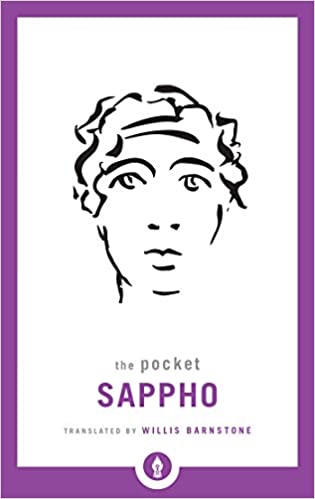 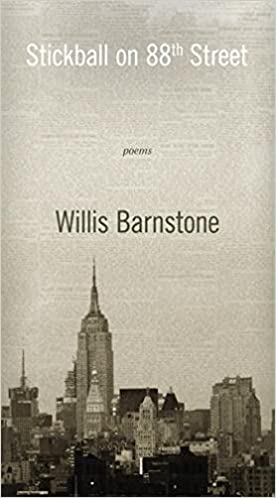
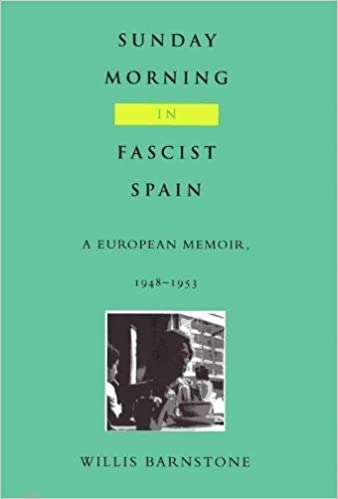 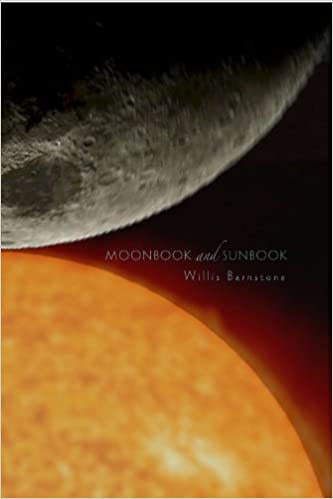 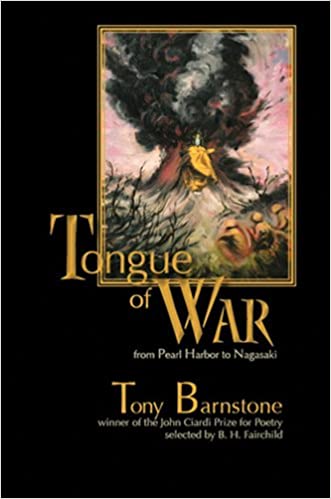

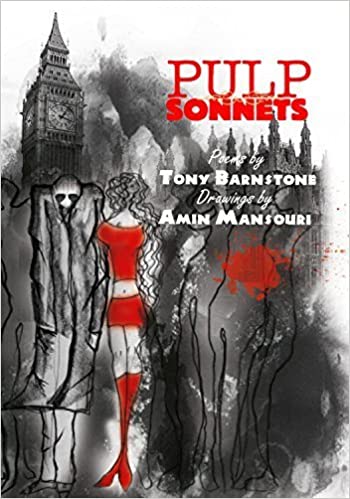
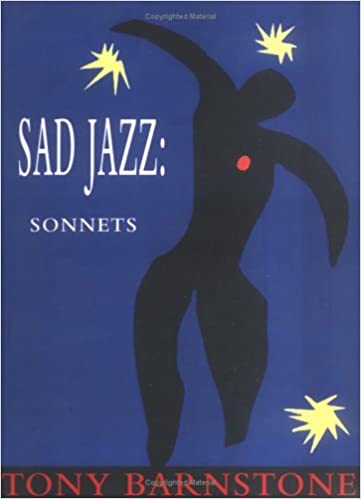
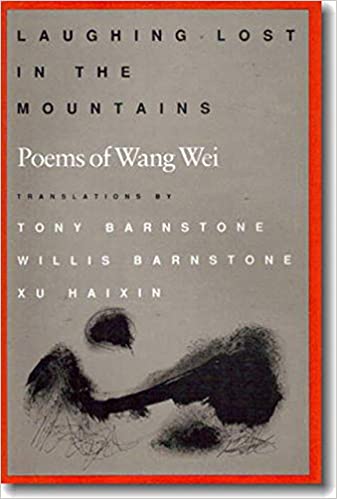 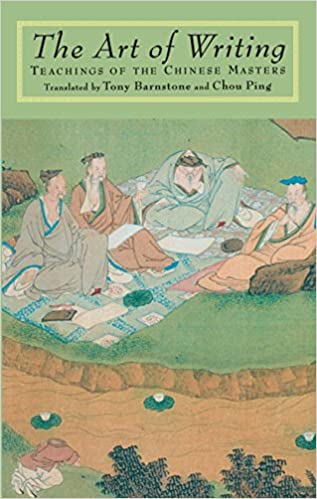 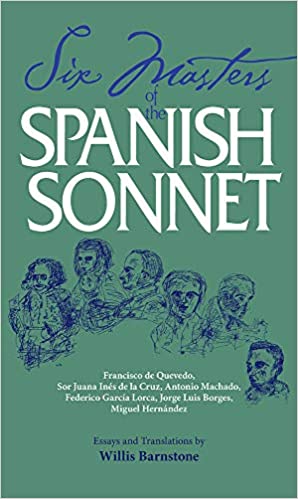

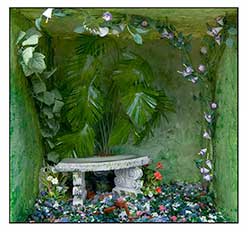
Secret Garden
by Lara Alcantara-Lansberg
The Groves of Academe
|
 |

